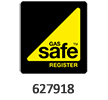HOW TO PREVENT LIMESCALE DAMAGING YOUR KITCHEN EQUIPMENT
Prevent the build up of limescale and prolong the life of your commercial kitchen equipment by following our 3 simple rules.
Broken down kitchen equipment cost businesses time, money and reputation. Water is essential for most kitchen equipment to function, however it can also be the reason for failure.
Limescale is a common problem in commercial kitchens, causing machine disruption and failures. The good news is, limescale is preventable.
So how can we use water effectively and prevent limescale and deterioration? Follow our 3 rules below:
1. Install a water treatment system or filter
Filtering water before it enters your cooking equipment reduces minerals and limescale deposits, which can ultimately lead to machine downtime and costly repairs.
One of the most common reasons combi ovens break down is limescale build-up. Limescale can form inside the oven, as well as on heating rods and sensitive heating components, which can cause the machine to wear more quickly and baking/ cooking programmes to run erratically. Excess limescale also means more energy will be required to reach optimum temperatures, leading to increased running costs.
A water filter can help keep equipment in peak condition by minimising the risk of limescale deposits that can lead to breakdowns, limited efficiency and inconsistency.
The benefits of a Water filter can play a huge part in prolonging the life of your commercial cooking equipment, “The purification of the water supply will increase the longevity of the products internal components and also gives environmental benefits by enhancing the performance of the cleaning chemicals and reducing the overall volume required, maximising the life cycle of the product and keeping it excellent condition.”
For cooking appliances and coffee machines, a filter can improve taste due to the removal of minerals in the water. Mark continues, “A water filter will also benefit by reducing the taste and aroma impairing substances from your water supply resulting in great tasting water that will complement the performance of your cooking product. “
With warewash, water softeners, demineralisation systems and reverse osmosis technology can be fitted to protect and preserve the warewash machine. All of these systems are designed to ‘soften’ water by remove calcium and minerals which can lead to limescale.
Installing a water treatment system is the first step to protecting your kitchen equipment from limescale, however preventative maintenance to these machines is essential to ensure the water treatment is working effectively.
Andi Coles, HOBART Service’s Operations Manager for the South explains: “If a dishwasher in a hard water area has a water softener, that softener is then crucial to how that machine performs. However, it’s the preventative maintenance visits that will acknowledge whether the softener is working well.”
2. Ensure you’re equipment is having regular Planned Preventative Maintenance appointments with CaterCare
Just like your car, it is critical to have regular preventative maintenance appointments for your kitchen equipment to prevent costly breakdowns and machine downtime.
Planned preventative maintenance carried out by a CaterCare engineer looks at each element of your kitchen equipment to check the safety and effectiveness. These checks can prevent costly equipment failures by identifying potential problems before they result in machine failure.
Andi explains further, “With a dishwasher - limescale will attack the boiler first, then the wash tank. By the time you see the scale in the wash tank, it can be too late. This is one of the biggest benefits of a PM check, the technician will test the accuracy of the softener or treatment and whether it's working properly. If it isn’t, it can be rectified there and then - that's the whole point of preventative maintenance.”
With combi ovens, a preventative maintenance plan is even more critical, “It's more complex with ovens,” Andi continues, “If water treatment to an oven isn't used or isn't working properly, you might start seeing corrosion or rust inside the oven.
“Again, as with warewash, preventative maintenance will capture exactly how the water treatment is working for the combi oven. If we do see signs of rust or corrosion at an early stage whilst doing a PM, we can adjust the water treatment, rectify the start of the corrosion, and prevent further damage which could quite quickly lead to the oven being beyond economical repair.
“That's how important PMs are - to both dishwashers and ovens – it’s about getting the most out of your kitchen equipment, minimising downtime and unexpected breakdown costs, and prolonging the life of your machine.”
3. Follow a consistent cleaning and deep cleaning regime
In addition to planned maintenance, a regular cleaning and deep cleaning regime is essential to prolong the life of all kitchen equipment.
The type of chemicals used in warewash machines are critical to the overall clean and can help extend the life of your warewash machine.
HOBART recommend Hyline dishwasher chemicals, specifically formulated for HOBART commercial dishwashers with hard water and soft water variations for different geographical areas. Hyline Hard Water Detergent prevents the build-up of limescale – ideal for hard water areas.
In addition to daily cleaning, HOBART recommend a monthly deep clean of your commercial dishwasher. Most HOBART dishwashers have an in-built Hygiene Programme which should be run once a month with our Hyline Warewash Hygiene tablets. Most HOBART machines will prompt you when a Hygiene Programme is needed, just one tablet will deep clean your commercial dishwasher in just 15 minutes!



